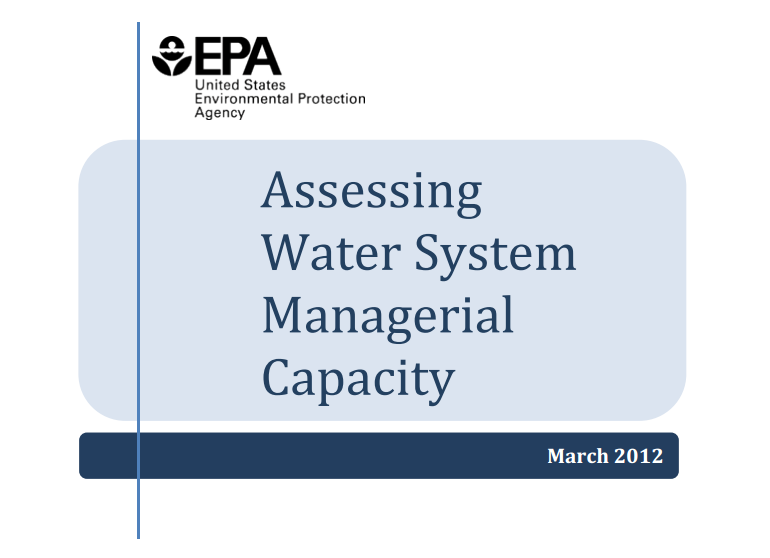Caroline Simpson is a graduate student with the UNC School of Information and Library Science and works as a Research Assistant with the Environmental Finance Center.
Utility managers may find new perspectives on water system managerial capacity in an unfamiliar place. Last March, the U.S. Environmental Protection Agency, along with a national Managerial Capacity Workgroup, which included the EFC’s Shadi Eskaf, published the Assessing Water System Managerial Capacity Guidebook (pdf). Aimed at aiding the state primary agencies’ Capacity Development Programs in crafting approaches and choosing indicators to monitor and measure water systems’ managerial capacity, this guide offers many concepts and ideas from a broader state-level outlook that utility managers may find insightful and relatable. “Managerial capacity” is defined in the document as the water system’s institutional and administrative capabilities that enable a water system to conduct its affairs in a manner enabling the system to achieve and maintain compliance with the Safe Drinking Water Act (SDWA) requirements.



